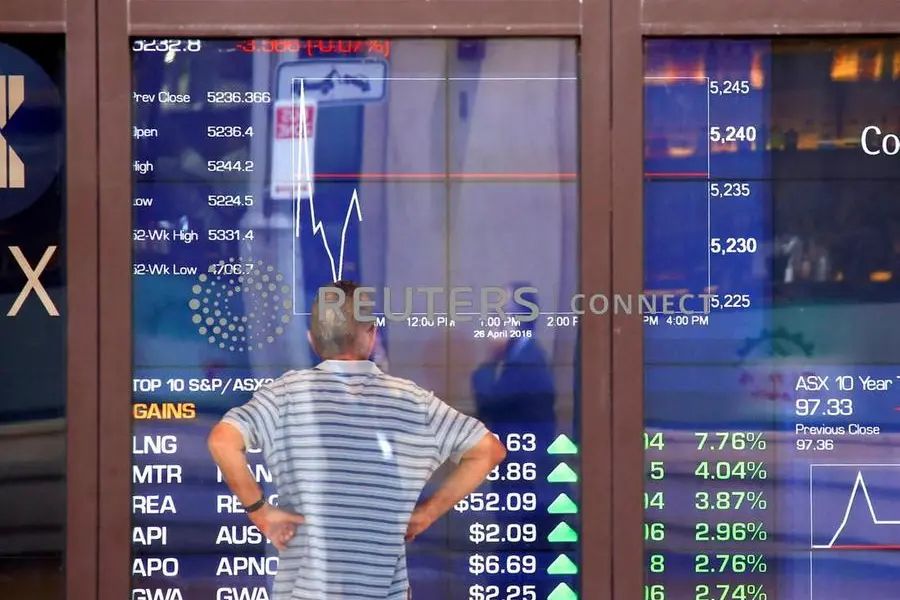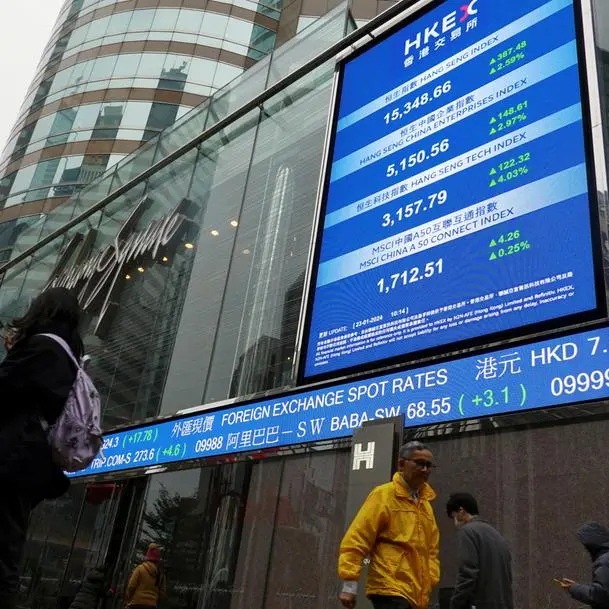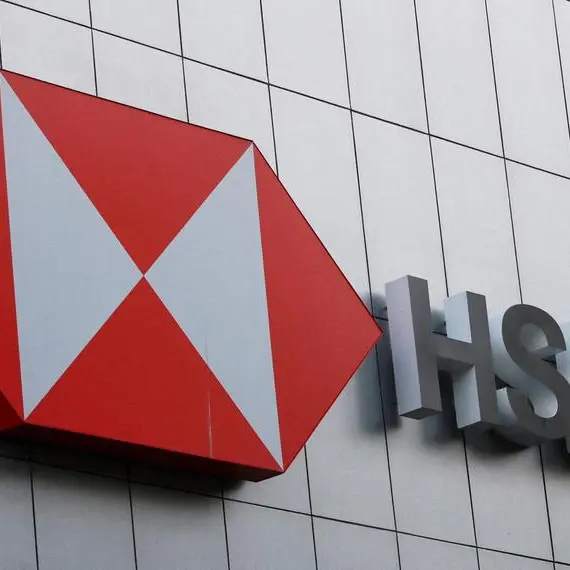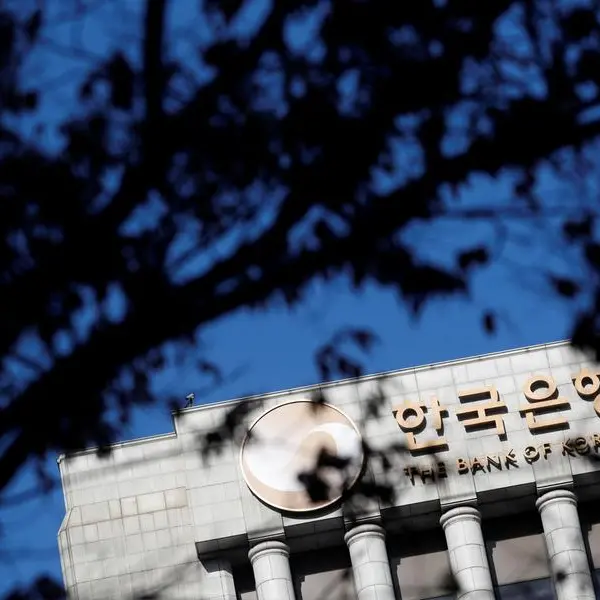PHOTO
Australian shares ended lower on Monday, weighed down by banks as recent U.S. inflation data prompted investors to dial back rate cut bets, while escalating Middle East tensions kept traders on edge.
The S&P/ASX 200 index closed 0.5% lower at 7,752.5 points. The benchmark notched its third straight session of losses.
Last week's inflation data from the world's largest economy along with comments from Federal Reserve officials indicated the central bank would keep interest rates higher for longer.
Futures now point to about 44 basis points (bps) worth of easing expected this year, from 160 bps that was priced in at the start of the year.
Investors will also focus on upcoming Australian labour force survey and January to March quarter inflation data for clues on the Reserve Bank of Australia's (RBA) monetary policy. Analysts at ANZ Group Holdings expect first-quarter headline inflation to tick higher sequentially.
"While the RBA has in the past shown little tolerance for inflation exceeding its forecasts, we do not think this will be enough for it to do an about-turn and consider a hike option at the May meeting, given the moderation in its policy stance," ANZ analysts said in a note.
They expect the RBA to hold rates until November.
Rate-sensitive sectors like banks declined 0.7% to end at their lowest level since late-February. Top lender Commonwealth Bank of Australia lost 1.4%, while Macquarie Group shed 0.8%.
Meanwhile, rising tensions in the Middle East further dampened risk-on sentiment among investors globally.
Healthcare companies dropped 1%, ending at their lowest level in three weeks, while technology firms lost 1.8%.
In contrast, miners climbed 0.5%, buoyed by gains in the prices of base metals, with upcoming economic growth data from China in focus. Mining giants BHP and Rio Tinto gained 0.6% and 3.6%, respectively.
In New Zealand, the benchmark S&P/NZX 50 index dipped 0.1% to finish the session at 11,916.78 points.
(Reporting by Aaditya Govind Rao in Bengaluru; Editing by Sonia Cheema)





















